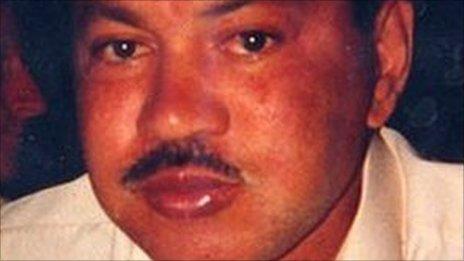Muriel McKay's daughter urges Met to let mother's killer find body
- Published
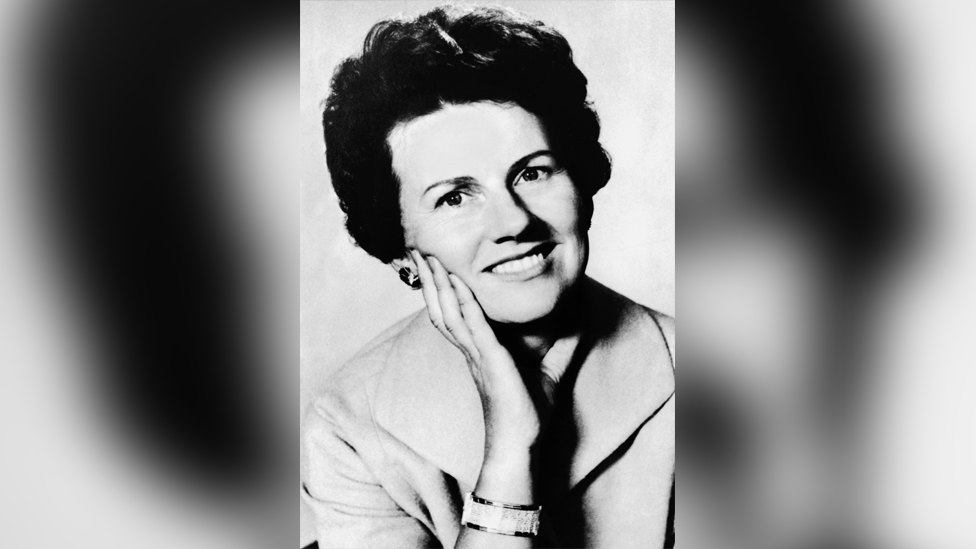
Muriel McKay, 55, was murdered by Arthur and Nizamodeen Hosein but her body was never found
The daughter of a woman mistaken for Rupert Murdoch's then-wife and murdered is urging the Metropolitan Police to allow one of her killers back to the UK to reveal where she was buried.
Muriel McKay, 55, is thought to have died at a Hertfordshire farm in 1969 but her body was never found.
Her daughter Dianne McKay, 83, wants Nizamodeen Hosein allowed back from Trinidad to help locate the body.
The Met said it would keep "an open mind to all available options".
Ms McKay was 29 when her mother, wife of Mr Murdoch's deputy Alick McKay, was kidnapped from home in Wimbledon, south London, in 1969, and held to ransom for £1m.
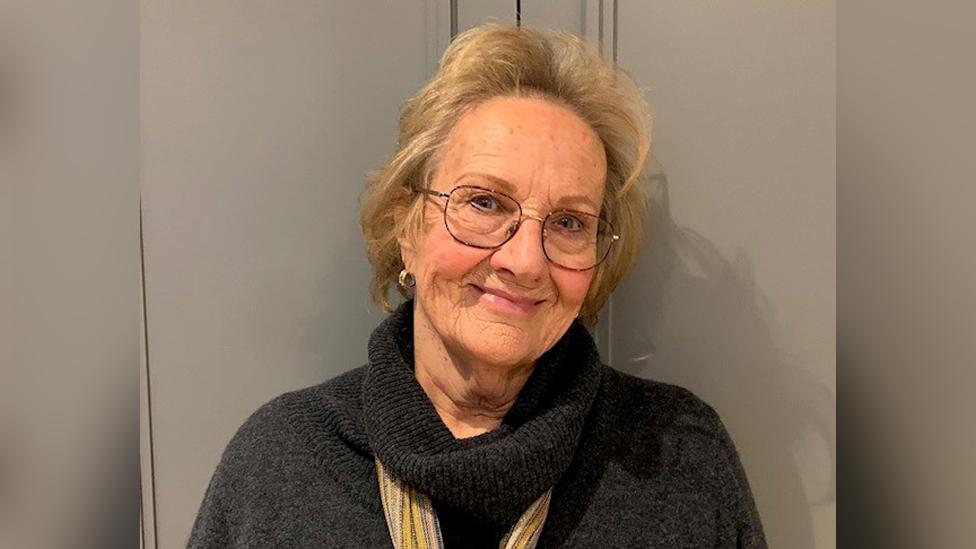
Dianne McKay says she is determined to find her mother's body
"It was horrific and life-changing," Ms McKay told the BBC.
"I was involved every step along the way. It consumed one with horror: the fear, the terror."
Brothers Arthur and Nizamodeen Hosein were convicted of kidnapping and murdering Ms McKay, believed to have been held at Rooks Farm, now Stocking Farm, in Stocking Pelham.
Arthur died in prison but Mr Nizamodeen was later deported to Trinidad.
Now 75, he has offered to show the exact spot where the body was hidden, but the McKay family said the process was being held up by the UK authorities.
The family employed a lawyer in Trinidad and offered Mr Hosein £25,000 to help them locate the body. He initially accepted but later refused the money.
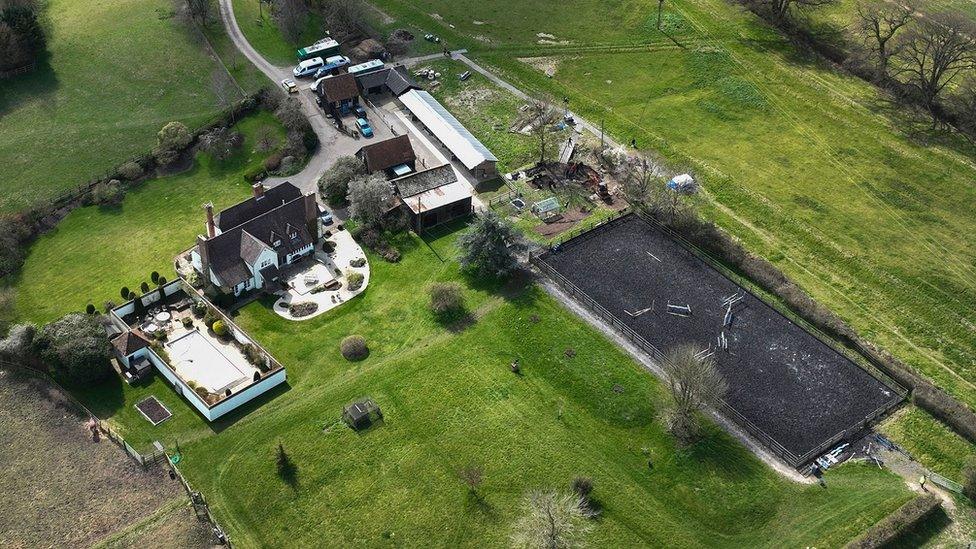
Mrs McKay's family want Nizamodeen Hosein to visit the farm in Hertfordshire to show exactly where she was buried
Ms McKay said she and her son Mark were determined to find the body.
She said she had formed "a sort of strange relationship" with her mother's killer, quelling worries that had troubled her for decades.
"For years I'd gone over the question of 'How did my mother let the men - who looked pretty rough - into the house?' He told me quite simply - she was outside," she said
"She saw them coming. She ran inside and picked up the phone, but didn't put the chain on. So that's how they got in."
Despite his murder conviction, Ms McKay says Mr Hosein has told her that her mother was not killed intentionally, but died after suffering a heart attack while being held hostage.
Ms McKay believes his account and says the brothers "panicked" and hid her mother's body under a dung heap on the farm.
'End of the line'
Ms McKay said while it had been "cathartic" to talk about the case, she was desperate for the closure the discovery of her mother's remains would bring.
"It would be the end of the line after all these years of worrying where she was," she said.
She said the Home Office had delegated matters to the Met, who did not seem interested.
"I understand they've got a lot more urgent things to do, but we feel it's our right," she said.
"They should get a search warrant for the farm, and allow Nizam to come for 24 to 36 hours. He doesn't want to stay in England; he's just coming to help us."
She said previous attempts to pinpoint the location with computer graphics had not worked.
"Reality would really help him - actually being there. It would help him remember exactly the place," she said.
"We'd like to get to the end of our hunt as it's cost us a lot of energy and emotion, and we would just like to complete our project for our mother's memory."
The Met said: "An extensive search for Muriel's remains was conducted in March 2022 at a site in Hertfordshire; unfortunately it concluded unsuccessfully.
"We have been engaging with some members of Muriel's family to keep them updated on an ongoing review. We will consider and assess any new information."
The Home Office declined to comment.

Follow East of England news on Facebook, external, Instagram, external and X, external. Got a story? Email eastofenglandnews@bbc.co.uk, external or WhatsApp 0800 169 1830
Related topics
- Published16 November 2023
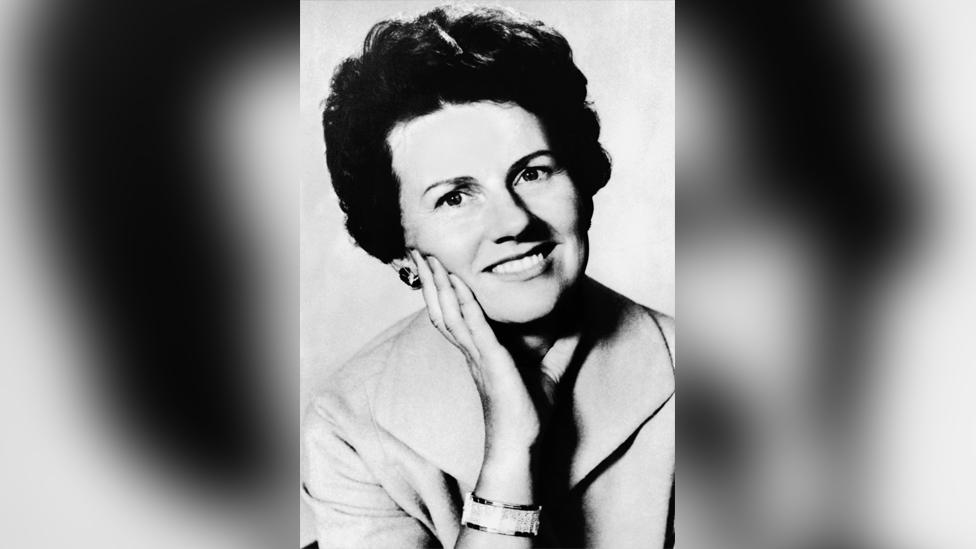
- Published3 April 2012
